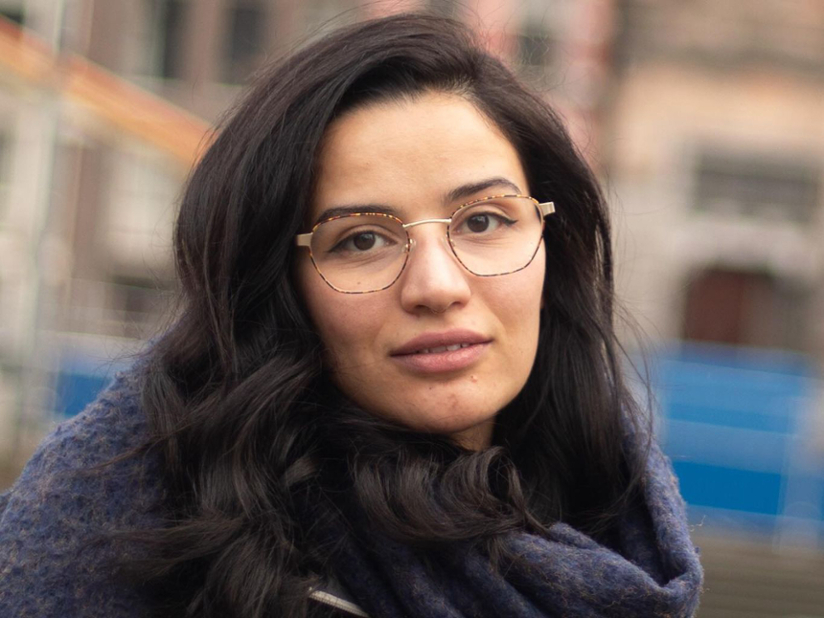
Olympic and Paralympic athletes hail from nearly every nation on the planet—and though the vast majority represent their home countries as part of the national team, 35 athletes compete as part of the Refugee Olympic and Paralympic Teams, representing an estimated 82 million global refugees. Student Lubna Yousef, MA COEX’22, is supporting these refugee athletes as a strategist with Airbnb, which has developed a unique product in their “Experiences” portfolio focused on refugee athletes. Guests can book an online experience that allows them to meet the athlete virtually and enjoy a lesson, class or workshop.
For her summer practicum with Airbnb, Yousef helped the athletes use the platform to tell their stories in their own voice, raise awareness about the refugee cause, and offer lessons in resilience and empathy to participants.
How did you get this practicum opportunity with Airbnb?
I first connected with Airbnb in 2016 after I was selected for the Atlas Corps Fellowship where they matched me with Airbnb’s Social Impact team to work on their Refugee and Disaster Response programs. This match was a unique one as it offered space for me to examine the intersection between the tech sector and the humanitarian development community, and that opened a new world of possibilities for me. After a MSc in International Politics in London I joined the Coexistence and Conflict Resolution program at Heller where I’ve been selected for the Sidney Topol Fellowship in Nonviolence Practice, and I am now doing my practicum.
My former supervisor at Airbnb told me about the company’s partnership with the International Olympic and Paralympic Committees and the support they’re giving refugee athletes through their Airbnb Experiences platform. I was offered the chance to return for my practicum to support on this specific project, and to think strategically and sustainably about the future of the program and how to expand it and create meaningful partnerships with the broader conflict resolution and refugee support community. It’s been a wonderful experience - and a rare opportunity - to connect with refugee athletes like swimmers Yusra Mardini and Abbas Karimi through my work with Airbnb, and I look forward to contributing even more to supporting them as they continue to use their platforms to advocate for refugees around the globe.
What's been the most rewarding part of your practicum work? Is there a particular refugee athlete's story that has stood out to you?
Meeting and learning from the athletes has been the highlight of my practicum this summer. They’re a testament to the importance of creating local connections and following the lead of the community you hope to support, and I look to them when it comes to addressing the existing narrative on the refugee crisis, issues of displacement, citizenship and borders.
One of the most touching stories I’ve come across was that of Paralympic swimmer Ibrahim Al Hussein. Ibrahim is a refugee from Syria and he is currently residing in Greece. He suffered an injury during the Syrian revolution and today, years later, and after much struggle and pain, Ibrahim is one of the most hopeful and positive people I’ve ever met. He continued to fight for his dream of going to the Paralympics and today that dream is a reality as Ibrahim qualified for the Refugee Paralympic Team and will be competing in Tokyo this August. I’m lucky enough to join him as a translator every now and then on his Airbnb Experience, and though I’ve heard it many times, his story continues to be an inspiration for me every time I hear it.
How will you use this work in your COEX studies and career moving forward?
There’s a whole world of opportunities within the tech sector as a partner for social change. The space has so much talent, flexibility and a penchant for innovating against difficult challenges. It has its own limitations of course, especially when it comes to having a nuanced understanding of certain realities on the ground, but this is where partnerships with experts from the development and human rights sector can prove valuable.
I see the tech sector as a strong partner that can be pulled in to think creatively about how to support communities recovering from conflict and I intend to research that possibility even further during my time at Heller and beyond. I believe it is important to plug more and more conflict resolution experts in the tech space and encourage an examination into how (and when) we can utilize data science and technology to help us understand patterns surrounding conflict issues and peace building projects.
